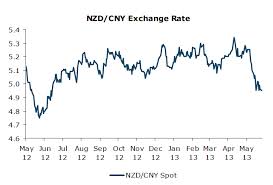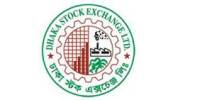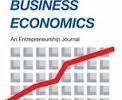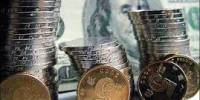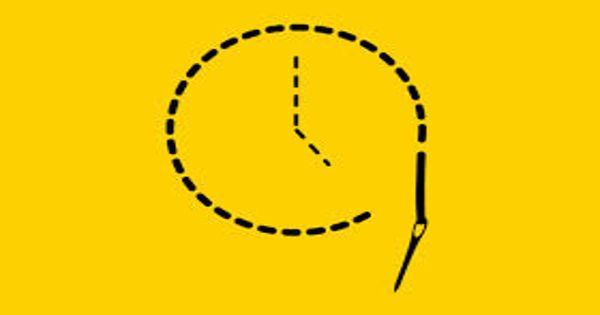Foreign Exchange
Any branch of IBBL deals with the three parts of activities. Threes are:
A. General banking (GB)
B. Investment And
C. Foreign Exchange.
My topics are performance on foreign exchange transaction of IBBL. Accordance to the topic, my discussion is only foreign exchange mechanism of IBBL.
Basically there is no difference of foreign exchange mechanism of he commercial there is no difference of foreign exchange mechanism of other commercial bank like IBBL. Because foreign exchanges acts, rules and regulations are maintained by the Bangladesh Bank according to the UCPDC 500 (Uniforms customs practices for documentary credit). But only difference the operations of IBBL. It will be discussed in Later.
IBBL deals with the customers/clients only by the three mechanisms. These are:
- Import
- Export and
- Remittance.
Before discussion on foreign mechanism, we need to define what foreign exchange is & how can they deal?
What is Foreign Exchange?
Foreign Exchange means currency & trade exchange say conversion of one to another. This is a part of economic & Science. This is a big deal divided into different currencies instrument such as Draft, Traveler Cheque, Bill of Exchange business including sell, purchasing of currency notes & TC etc.
Currency Exchange means the conversion of one Currency into another.
Foreign Exchange Market:
Foreign Exchange market means the places where foreign currency is bought & sold. In this more that supply, currency value & v.z.
Alternately following are the features of foreign exchange market:-
- Bank & client.
- Different Banks in the same foreign exchange market.
- Different Bank & Schedule Bank of the same country.
- Different Control Bank.
Islami Bank follows the following the two craters in respect & payment of foreign exchange:-
- Local currency market value &
- Foreign currency market value.
EURO Dollar, Petro Dollar, Asian Dollar :
EURO Dollar is virtually no paper dollar, but mark in dollars, it’s a new name in the currency market in the world Similarly petro Dollar means the Dollar earn from sale of fuel. Particularly oil based midilists countries. Thirdly Asian Dollar means the dollar of Singapur, Hongkong, Tokyo, Baharin etc-Asian Dollar move or less control EURO & Petro dollars.
Islamic Bank can buy or sale foreign currency from the foreign exchange market for profit. This bank posses license from Bangladesh bank to deal foreign currency business in the currency exchange market in the world. Islami Bank maintains overseas inter A/C, with different a Banks in different countries. In the world for network system for Import, Export & Remittance purpose foreign exchange currency may be created a commodity for which Islamic Bank can sell or purchase the same to the party or other bank with some profit (exchange).
Why Exchange is being controlled?
- To stabilize the rate of exchange.
- To protect domestic industries.
- For proper implementation of plans.
- To increase the bargaining strength
- To check over invoicing & Under invoicing
- To check the Blank marketing and smuggling
- For regulating the international movements of goods
Authorized Dealer Branch:
Bangladesh bank in exercise of the power under section 3 of Foreign Exchange regulation Act. 1947 issues a license to schedule Bank where they have adequate trained Officer/Staff to deal in Foreign Exchange. The banks that are authorized to deal in foreign exchange are called authorized dealers.
Money Exchanger:
License are granted by Bangladesh bank for hanged of Foreign Currency such as notes, coins and TC to a person or firm a corporation strictly maintains in accordance with exchange control regulation.
- Hotel.
- Bangladesh Biman
- Parjatan Corporation etc.
Rate of Exchange:
The rate at which one currency is exchanged with another is known as rate of exchange.
Rate will be quoted in accordance with demand and supply. Bangladesh Bank Quote rate based on New York money market.
Exchange Position:
Relation between sale & purchase either in spot or forward purchase in a particular date in a particular currency. This relationship which in known as exchange position.
Arbitrage of Foreign Exchange:
Arbitrage can be defined as simultaneous buying and selling of foreign currencies for the purposes of making profit Arbitrage is carried out mostly by banks, They keep constant watch over the latest development in the financial market of the world.
Foreign Exchange Regulation Items:
- Bangladesh Bank Manual.
- Foreign Exchange Circular.
- Public Notice
- Import & Export Policy Gazette
- Ministry of Commerce Circular
- BCD circular.
- Guide lines for foreign exchange regulation.
- Other authorization (i.e. NBC Dept)
Statutory Control Forms:
- EXP Forms for Export
- IMP form for Import.
- C Form for Inward Remittance.
- TM Form for outward Remittance.
Multiple Exchange Rates:
Various rate quoted for one currency purchase and sale. Our country rate is multiple exchange rates.
The rate of exchange is the price of one currency in relation to others. Rates are three types.
- Currency rate
- Peens rate
- Cross rate.
Currency Rate: (Indirect Quotation):
Buy high sell low i.e. local currency fixed and foreign currency variable e.g. India & London quoted this rate.
In case of currency rates:
- Buy high
- Sell low
- Premium deducted P-
- Discount added D+
- Fore Buying in currency rate higher discount is added and lower premium is deducted.
- For selling lower discount is added and higher premium is deducted.
The following currency rates are given below:
- Currency rate (Indirect Quotation)
- Peens rate (Direct quotation)
- Cross rate.
Currency rate:
Local currency fixed and foreign currency variable i.e. by & sell high. New York money market quoted this rate.
Peens rate:
Foreign currency fixed and local currency variable i.e. buy low & sell high. New York money market quoted this rate.
Cross Rate:
Other currency rate to one another.
There are tow way quotation in exchange rate i.e. (a) Buying Rate & (b) Selling Rate.
Buying Rate:
It is the rate of exchange at which it would put through a purchase transaction i.e. export & inward Remittance and selling rate is the rate of exchange at which it would put throughout a sale transaction i.e. Import bills including outward Remittance.
Exchange Rate Rules:
a) In case of Peens Rate-
i) Buying low
ii) Selling High
iii) Premium Added: (p+)
iv) Discount deduction : (D (-D))
b) In case of currency rate:
i) Buy High
ii) Sell Low
iii) premium deduction (P (-)
iv) Discount added 😀 (+)
c) For Buying:
i) In currency rate higher discount is added and lower premium is deducted.
ii) In peens rate higher discount is deducted and lower premium is added.
d) For Selling:
i) In currency rate Lowe discount is added and higher premium is deduced.
ii)In Present rate lower discount is deducted and higher premium is added.
Buy Sell Buy Sell
Low High High Low
LP (+) HP (+) (LP (+) HP (-)
HD (-) HD (-) HD (+) LD (+)
Basket of currency in our Country:
1) US Dollar
2) Pound Starling
3) DM (Deutch mark)
4) Yen
5) France Frank.
Our rate quoted based on US Dollar in the year 1986 January instead of pound sterling.
Now the rate in our country is unification from January 1992.
| Exchange rate Mechanics m/Exchange & its Fixation. Date | Particulars | Buying | Selling | ||
| Say14.6.98 | Import Bill | – | Selling | B>S | Long or over brought position. |
| “ | Export | Buying | S>B | Short or over sold position. | |
| “ | Export | B=S | Square position i. e open position |
* Buying- Selling = Exchange Position.
Apply of Rate:
TT (Telegraphic Transfer) & OD (on demand) rate:
TT & OD rate should be applied for foreigners & Govt. people i.e. other than import. BC (Bills for Collection) Selling Rate: This rate should be applied for Import Bills only.
IT Clean Rate :
This rate should be applied for other that foreigners i.e. the A/C holders and for purchasing Cheque, Draft, TT, MT, P.O, TT. Clean rate also will get foreign currency Account holder and purchasing of foreign currency note
O.D Sight Expert:
When we will purchase the export document in that case rate will apply O.D sight export
O.D Transfer Rate:
This rate should be applied for official people & foreign only. Cheque, Drafts, MT, TT. P.O- Coupons etc. will be purchased applying OD Transfer rate.
Selling Purchase:
TT, OD Tate:
TT, OD rate will be applied for official people who lived abroad as Bangladeshi Embassy official foreigners, foreign firms people etc.
BBC Rate:
This rate will be applied to all people of foreign currency account holder and import bills i.e. selling of fund other than government official and also service holder of Embassy and foreign firm officials.
TT Doc. Buying Rate:
This rate will apply export process realized after collection bills Islamic Bank introduced this rate is 1994.
Methods of effecting payment of IBBL:
Islami Bank follows the following methods to make payments between countries.
- Telegraphic Transfer (TT): This is an instruction for transfer of money by Telegram, Cable or telex from a bank in one country to another Bank in different center. This is an instruction form the Importers Bank to the exporters Bank. The TT charge is realized by us from the partly as per Bank circular.
- Mail Transfer (M.T): This transfer is the order to pay cash to a 3rd party. This Transfer is sent by mail & the charge must be realized as per Bank circular.
- Drafts & Cheque: A draft is pay order issued by one Bank to another Bank or its branch.
Over Bought: This position known as long position.
Over Sold: This position known as short position.
Libor:London inter Bank offer rate.
SWIFT: Society for world wide Inter Bank financial Tale Communication.
CHIPS: Clearing House Inter Bank payment system
NOSTRO A/C: Our A/C with you i.e. out A/C with American Express
NOSTRO A/C: Our A/C with you, Al- Raji A/C with IBBL
LOROD A/C: This A/C i.e. third Bank Relationship
ACU: Asian clearing Union ACU member countries are Iran, India.
